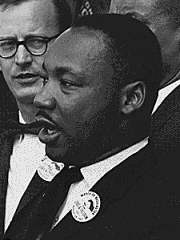Indeed, black Americans faced institutionalized racism as well as social and economic losses. A spirit of “Redemption” swept through southern society. John Hope Franklin asserts that, “in every important social relationship the Negro was kept at a ‘safe distance’.”1

Black Americans faced institutionalized racism as well as social and economic losses
The United States Supreme Court moved quickly to reverse decisions that benefited blacks. In 1883 the court “ruled that the Civil Rights Act of 1875 was unconstitutional – that the federal government could not prevent racial discrimination by private parties.” 2 This reversal raised serious concern among outspoken Black American leaders like Bishop Henry McNeal Turner. Turner advocated for emigration to Africa because of the general deterioration of race relations, the attempts to disfranchise blacks in Southern states, and the rapid increase in violence” against blacks.3
The reader will be struck with the way in which, in telling his story up to the time of Mr. Lapsley’s death, he always keeps Mr. Lapsley to the front and himself in the background. At the same time he will observe, what Mr. Lapsley would be quick to acknowledge if he were living, that in many of the critical situations that arose it was the ready mother wit of the author of this book by means of which they were extricated. S. H. Chester 4
 &
&